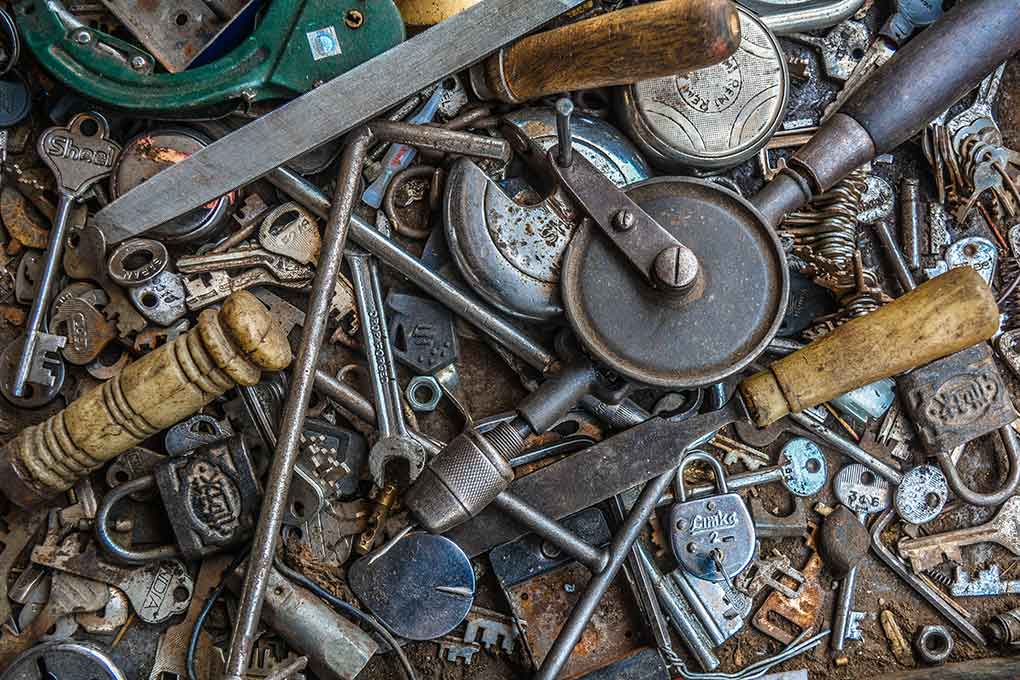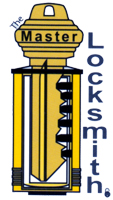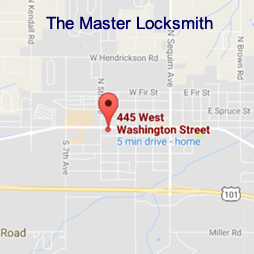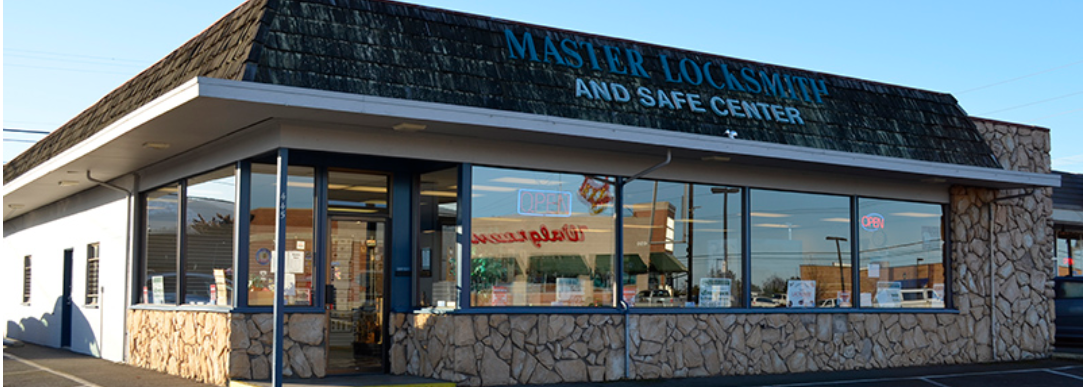The Master Locksmith
445 W. Washington Street
Sequim, WA 98382
"Experience Makes the Difference"
All Keys Are Created Equally, Aren’t They?

Have you ever read the history of locks and keys? It is quite fascinating. Locks and keys have been around for thousands of years. Originally they were made of wood. The biggest problem with wood was that it wore down. With the passage of time, as we drew closer to entering the modern age, keys remained while the materials to make them changed.Wood was replaced with bronze and iron.
Today keys are made out of nickel silver, brass, and steel. Some companies even recycle brass casings to press and create keys. Steel keys require a different, harder blade in order to cut on duplicating machines. Therefore these blades are more expensive and less available as the majority of keys in the U.S. are either nickel silver or brass and don’t have the same hard metal cutting requirements. Finally, there are the cheaper, non-duplicatable keys; which are most often die-cast pot metal.
The type of key machine used and its maintenance also is a factor when dealing with keys. Key machines need to be calibrated on a regular schedule to maintain their precision; allowing them to make up to seven or eight generations workable duplicates. Locksmiths keep their machines calibrated, sometimes doing the maintenance as often as once a week, to make sure the keys they sell work properly. Yet, bad duplicates can, and have, been made. Experience makes a difference when cutting a key.
We have had people bring in keys to be duplicated, only to find out later that the original didn’t work when they brought it in. They incorrectly assumed that making a duplicate of a bad key would correct the issue. Duplication only produces a copy of the key. If it doesn’t work when you bring it in, a copy won’t work either. (Talk to your locksmith about decoding a bad key and seeing if he can make a new one by code.)
Aftermarket or knock-off key blanks. One of the things that happens, not only in the locksmith industry but in various other industries, are knock-offs. In the locksmith industry, we often use the term aftermarket to describe something that wasn’t made by the original manufacturer. While not all after-market products are problematic, cheap key manufacturers tend to be. An issue that often occurs; is when another country/manufacturer, get patent information and change it just enough so that it doesn’t infringe on copyright laws.
Most often these modifications are part of the inner workings of the item. While it is easier and cheaper to mass-produce them, keys for cheap locks often can’t be duplicated. This doesn’t mean that the lock is superior (usually just the opposite), it does mean that if you are down to one key, you better hold on to it, and perhaps even replaced the lock sooner than later, as they can be very difficult to duplicate.
Quite a few people bring in a key for a cheap lock asking for a duplicate to be made. Since the manufacturer used a similar lock and key style, (as an example a master padlock key) we may have key blanks for the original manufacturers blank; which sometimes wiht modification the blank may work in the lock. However, there is no guarantee it will work unless we have the padlock in hand to test the key.
This is because these manufacturers don’t care if you have duplicate keys made; Since they are inexpensive enough to replace. They would rather you throw the lock away and buy a new one, than worry about you making a duplicate key. It is better to pay a bit more for a lock that with duplicatable keys. Even though I used the example of a padlock, it is not limited to these types of locks. Another example would be cheap house locks which have the same type of problems. (Plus they aren’t re-keyable.)
Adding transponder technology into the mix. When you purchase a car, buying a transponder key online and bringing it to your local locksmith to cut and program can be problematic.
One of the problems that occurs is that some companies who sell transponder keys are selling keys that can’t be programmed. They have either already been programmed and aren’t physically able to take different programming or they are the wrong type of transponder for the vehicle.
As an example; Ford has a transponder key that is a “C” blank and a “D” blank. The key profile and the “look” of these keys are visually exactly the same. It is the transponder chip on the inside that is different. There are a lot of transponders that can’t be programmed unless the key is cut in order to turn the lock in the vehicle during the programming process. To complicate matters more, once a key is cut, most companies’ return policy will not allow you to return a wrong key once it has been cut.
The bottom line: you may find a cheap key online to purchase but it may, in the long run, be more expensive than if you had bought it through your local locksmith. Purchasing through your local locksmith not only guarantees you are getting the proper key but also can offer peace of mind as the potential for saving time. You don’t have to worry about the correct key or programming. You know it will all work right the first time.
Additionally, most locksmiths guarantee the keys they sell, so if they cut it wrong, they will replace it to make sure you get what you are paying for. When you purchase a key from a different source, a locksmith must charge you to cut the key and the locksmith cannot offer a guarantee policy. Additionally, some locksmith won’t touch a key you bought from a different source due to the multiple problems it may present.
What happens when your local locksmith refuses to cut or program the key you purchased online? Well, you can get mad, however, it is their right to refuse. At that point, you will have to either go to your dealership to try to get them to take on the challenge or find another locksmith that is willing to run the risk. (Most dealers will not cut or program a key you didn’t purchase from them.) As with all things, sometimes it works out perfectly. Sometimes, everything goes wrong.
Before purchasing a key online;
- talk to your local locksmith to see if they would be willing to cut and program it
- find out what their policies are
- and/or if they can refer you to someone who would be willing to do it if they aren’t
- Also, find out the cost difference if you purchased the key directly from them.
Remember, the vast majority of locksmiths are small businesses and generally family-owned companies. Even though the cost of purchasing something online may be lower, especially as online purchasing becomes more prevalent, small businesses have to fight to survive. Without the support of local communities, they just can’t survive.
Contact Us About Your Project TODAY!
 The Master Locksmith
The Master Locksmith
located at
445 W. Washington St.
Sequim, WA 98382

(360) 683-8817
Serving the Communities of the
North Olympic Peninsula
in Washington State:
Sequim
Carlsborg
Port Angeles
Port Townsend
and surrounding communities
